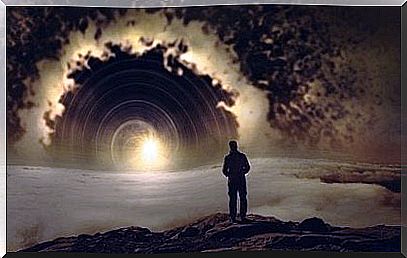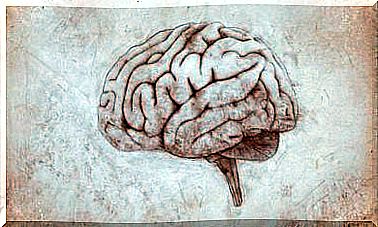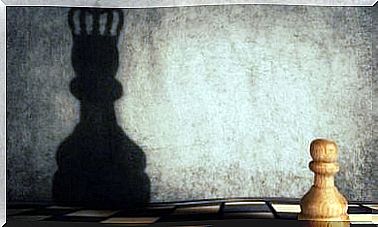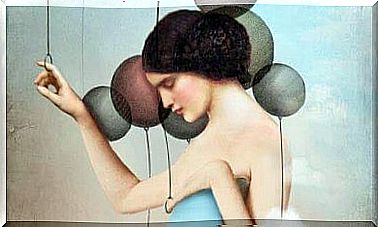The Theory Of Self-Realization: The Key To Human Potential

Mahatma Gandhi, Viktor Frankl or Nelson Mandela are clear examples of the theory of self-realization. According to this approach, each of us must decode what is in him and shape it. Fight for it no matter what. It is intentional, responsible and creative growth where we don’t give up until we become what we aspire to.
Abraham Maslow said in 1943 that a musician can only make music. An artist has to paint and a writer has to write if he wants to be happy. As the father of the pyramid of human needs pointed out to us, everyone has their own aspirations and potential in their being. Opposing or not promoting it creates frustration.
Also, an aspect that we must take into consideration is the difficulty of reaching this summit. Whether we like it or not, it is not always possible to align personal goals with real occupations. Moreover, we don’t always have the opportunity to show our full potential or devote our life to what we have always dreamed of.
It is a very complex subject. However, on this path to self-actualization, discipline, hope and determination are essential nutrients. Another thing to accept is to assume that it won’t be an easy trip. As the personalities we have already mentioned did at the time.
Moreover, Viktor Frankl himself pointed out to us that self-actualization is not a goal, it is a constant path where we learn to be better every day, to get closer to our best version of ourselves..

What is the theory of self-actualization?
The theory of self-realization stems from humanistic psychology. In this current, one of the most important figures was undoubtedly Abraham Maslow. Through books such as “ Towards a psychology of being ”, he indicated the following postulates.
- Self-realization is being able to achieve our highest needs, be it social status, emotional aspirations, goal achievement….
- It is also to have defined the meaning of life for us and to make it ours. To devote it day to day to this ideal.
- At the same time, there is an essential aspect of the theory of self-realization, which is that it is about growing what is already in us. In other words, if we don’t have the skills to be scientists, there is no point in dreaming of being the new Stephen Hawking. Everyone should be aware of their abilities and potential.
- Carl Rogers, another prominent figure in humanistic psychology, told us that it is also about finding a balance between the real self and the ideal.
On the other hand, a more than interesting detail of this approach is the following. Maslow defended the fact that we are “programmed to achieve ourselves”. There is a very powerful urge within us to achieve this high balance between what we are and what we can do. However, sometimes the company itself does not facilitate this state .

The keys to self-actualization
If we look at Abraham Maslow’s classical theory of human needs, we may come to believe that this ascent to the top (self-actualization) follows a linear process. First, we need to feel safe physically. Then we have to meet the affiliate needs. Then those of belonging and love, of social status. And this for later, to reach the “top”.
Today, studies like the one conducted by Wild Whitellman of the University of Atlanta underscore the need for business to reinterpret the theory of self-actualization. To achieve this state, we can therefore rely on the following dimensions.
Self-realization is not a linear process
Viktor Frankl, Mandela and Gandhi spent a lot of time in situations where their security needs were threatened. The first stage of Maslow’s pyramid was not covered but, despite this, they focused on their personal achievement every day.
- Gandhi used civil disobedience to gain the freedom of his people. Viktor Frankl has remained steadfast in his meaning of life, even in Auschwitz and Dachau. Nelson Mandela did not give up his fight even when he was in prison.
- That is to say, when we remain firm in our values and in this force that determines us. It doesn’t matter how lonely, lacking a job or a home.
Be consistent, be creative
The theory of self-realization reminds us that there is an intrinsic strength within us that guides us towards a goal. If you are a musician, you cannot give up your passion by devoting your life to another profession. This need will always be there and we must be constant in our efforts.
The use of creativity, the discovery of other paths or even their creation on our own, are bridges that allow us to move from frustration to the personal height.
Self-realization is within you, listen to it and focus.
Psychologist and philosopher Mihály Csíkszentmihályi also points out that self-realization is innate in us. This potential will gradually emerge. However, we must listen to it and strive to shape it every day.
So, anyone who aspires to help others will be happy in jobs like nursing. Social services. Psychology. And even teaching. There are many scenarios where goals are aligned with occupations. And when we do, when we are immersed in these tasks, this is where we really discover what happiness is.









